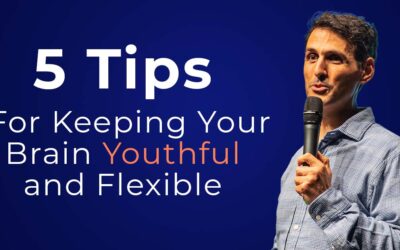Great discoveries often happen because someone with a flexible mind is willing to see things in a new way. In 1905, Albert Einstein had one of the most flexible minds in the scientific world. He dared to see that light exhibited not only wave-like but also particle-like properties, a groundbreaking insight that changed physics forever.
Embracing the Paradox
This idea turned classical physics upside down. The safe, predictable world scientists thought they understood was no more. As Einstein put it, “It was as if the ground had been pulled from under us, with no firm foundation to be seen anywhere.” Despite the chaos, he embraced this paradox and reshaped our understanding of the universe.
The Trap of Rigid Thinking
However, the story takes a twist. Decades later, Einstein became rigid in his thinking. When quantum physics emerged, further challenging the stability of the universe, Einstein refused to accept it. He famously claimed, “God does not play dice.”
Max Planck, another great scientist, once said that science advances one funeral at a time. Even brilliant minds can become stuck in their ways, making way for new and flexible thinkers. But does this have to be inevitable? Thankfully, we can learn from history and strive to keep our minds flexible.
A Truly Open Mind
Brains age when they become fixated on one perspective. A youthful and flexible brain, on the other hand, is willing to question what it knows. It’s ready to say, “Well, I don’t know, maybe. That’s possible.”
Ask Yourself These Questions
To maintain a flexible brain, regularly ask yourself these questions:
1. Am I Trapped in a Fixed Worldview?
Are you holding on to rigid beliefs in your business, relationships, or political views? Identify where your thinking might be inflexible. Are there areas of your life where you feel stubbornly immobile? It could be a decision you can’t make or an action you can’t motivate yourself to take. Often, this indicates a rigid belief blocking your perception.
2. Do I Allow Room for Change?
Do you make space for the possibility that your perception of reality could change completely? Do you acknowledge that there are things you don’t know yet? Does this uncertainty excite you?
3. Am I Open to New Perspectives?
Do you expose yourself to new and challenging ways of thinking? Do you seek out books, articles, and films that make you rethink your viewpoints? Do you experiment with concepts that take you out of your comfort zone?
Embrace the Unknown
Keeping your brain young isn’t just about remembering facts; it’s about being willing to rethink what you know. By staying curious and open to new possibilities, we can avoid getting stuck like Einstein did. Embrace the unknown and stay open to learning. This mindset will help keep your brain flexible and youthful, ready to see the world in new and exciting ways.




0 Comments